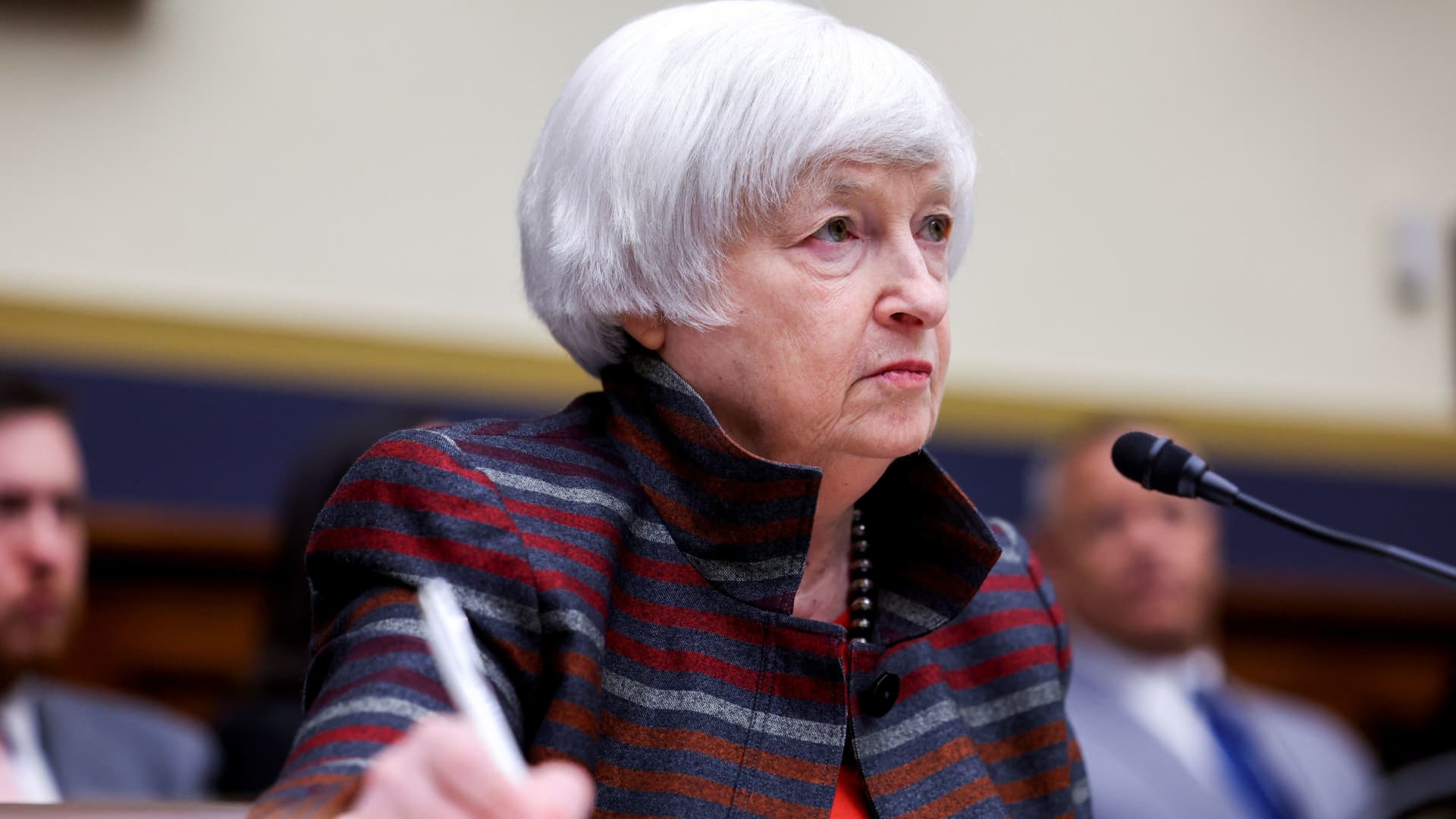U.S. Treasury Secretary Janet Yellen testifies before a House Financial Services Committee hearing on the “Annual Report of the Financial Stability Oversight Council” on Capitol Hill in Washington, U.S., February 6, 2024.
Amanda Andrade-rhoades | Reuters
Treasury Secretary Janet Yellen on Wednesday lauded President Joe Biden‘s investment in electric vehicles for accelerating the sector, even as the industry cools off from its years-long hot streak.
Yellen touted Biden’s EV actions in Kentucky at a new $49 million EV battery factory built by Advanced Nano Parts, a battery supplier that will receive tax credits from Biden’s Inflation Reduction Act for the new clean energy facility.
“It’s part of a boom in EV-related investments in Kentucky,” Yellen said. “The Biden Administration’s policies and federal funds are fueling private sector investments.”
The secretary’s EV bullishness comes as the private sector tempers its mood on all-electric vehicles.
According to a recent CNBC report, major automakers that had eagerly set deadlines for their all-electric car transitions, like Ford and General Motors, are now cooling their expectations, shifting to more of a wait-and-see attitude rather than adhering to a tight EV conversion timeline.
The initial investor excitement around EVs was spurred in part by cheap money from low-interest rates, as well as Biden’s IRA, which introduced tax credits for both consumers who purchased all-electric vehicles and for the companies that produced them.
“The great American road trip is going to be fully electrified,” Biden said optimistically at a Michigan event in September 2022.
However, building out EV charging infrastructure has been slower than anticipated.
And consumer demand for the vehicles has not kept pace with original expectations.
Biden now also is reportedly slowing down his EV goals.
Workers with the City of Milwaukee Department of Public Works install a sign near the Pieper-Hillside Boys and Girls Club where President Joe Biden is scheduled to speak later in the afternoon on March 13, 2024 in Milwaukee, Wisconsin. Following his visit to Milwaukee, Biden is scheduled to visit Saginaw, Michigan on Thursday.
Scott Olson | Getty Images
The president introduced his EV investments with a goal of making half of all new vehicle sales electric by 2030.
As part of that timeline, the Environmental Protection Agency last April proposed its most ambitious restrictions on vehicles’ greenhouse gas emissions, which would have required EVs to take a majority share of the auto market by 2032.
Officials now are adjusting those rules for a more gradual increase in EV production, which would extend the emissions reduction timeline to roughly 2055, The New York Times reported in February.
With November’s presidential election looming, Biden’s aggressive EV push in some ways has also become a political liability.
In January, Biden secured the endorsement of the United Auto Workers, a union that has fears that the transition to EVs will leave autoworkers behind.
As the self-proclaimed “most pro-union president in American history,” Biden has had to reckon with the tensions between his EV goals and his labor stance.
Biden’s election opponent, former President Donald Trump, has repeatedly attacked Biden’s all-electric goals on the campaign trail.
“Green New Scam … All Electric Car Lunacy, and so much more, are looking to destroy our once great USA,” the Republican Trump wrote in a social media post on Christmas day.
– CNBC’s Michael Wayland contributed to this report.
Read the original article here
